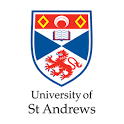
History and heritage
founded in the 15th century, st andrews is scotland's first university and the third oldest in the english speaking world. Teaching began in the community of st andrews in 1410, and the university was formally constituted by the issue of a papal bull in 1413.
vision
The university’s vision is to be net zero by 2035. The university will take out all avoidable greenhouse gases it releases into the atmosphere and compensate for emissions that are unavoidable.
We understand that carbon is just a proxy for wider environmental sustainability, including in areas such as the loss of biodiversity and the minimisation of waste, especially plastics, and will set ourselves challenging targets in these areas too.
we have already reduced our carbon footprint by 15%, which is a big achievement since the university area and student population has grown by 20% over the past 10 years.
We are working with clean energy, behaviour change and offsetting to continue reducing our footprint. We have a long way to go but so far managed to:
connect 25% of our buildings to clean energy supply
plant over 1,000 trees for biodiversity
launch training in environmental sustainable action (tesa) as a module for all students
launch a sustainable investments policy to guide how university endowment funds are managed.
strategy
In February 2020, Principal Sally Mapstone launched the Environmental Sustainability Board (ESB). The ESB leads the University's response to climate and environmental change, as well as the Scottish Government's target to become carbon net zero by 2045.
We are accelerating our institutional approach to sustainability in teaching, research and operations to realise this goal.
Students, academics and professional staff form the ESB. Led by Professor Sir Ian Boyd, the board has launched the University's new environmental sustainability strategy to become net zero 2035. Thus, the University aims to be net zero ten years earlier than the Scottish Government's target. To achieve this, the ESB brings together five working groups:
Sustainability in the Curriculum
Students and Community
Research
Operational Adaptation
Estate, Energy and Environment.

The MSc in Computing and Information Technology develops students' critical understanding of the issues associated with using computing systems and their impact on business processes and project management. It also gives students without prior programming experience the opportunity to gain programm...
© 2025 coursetakers.com All Rights Reserved. Terms and Conditions of use | Privacy Policy